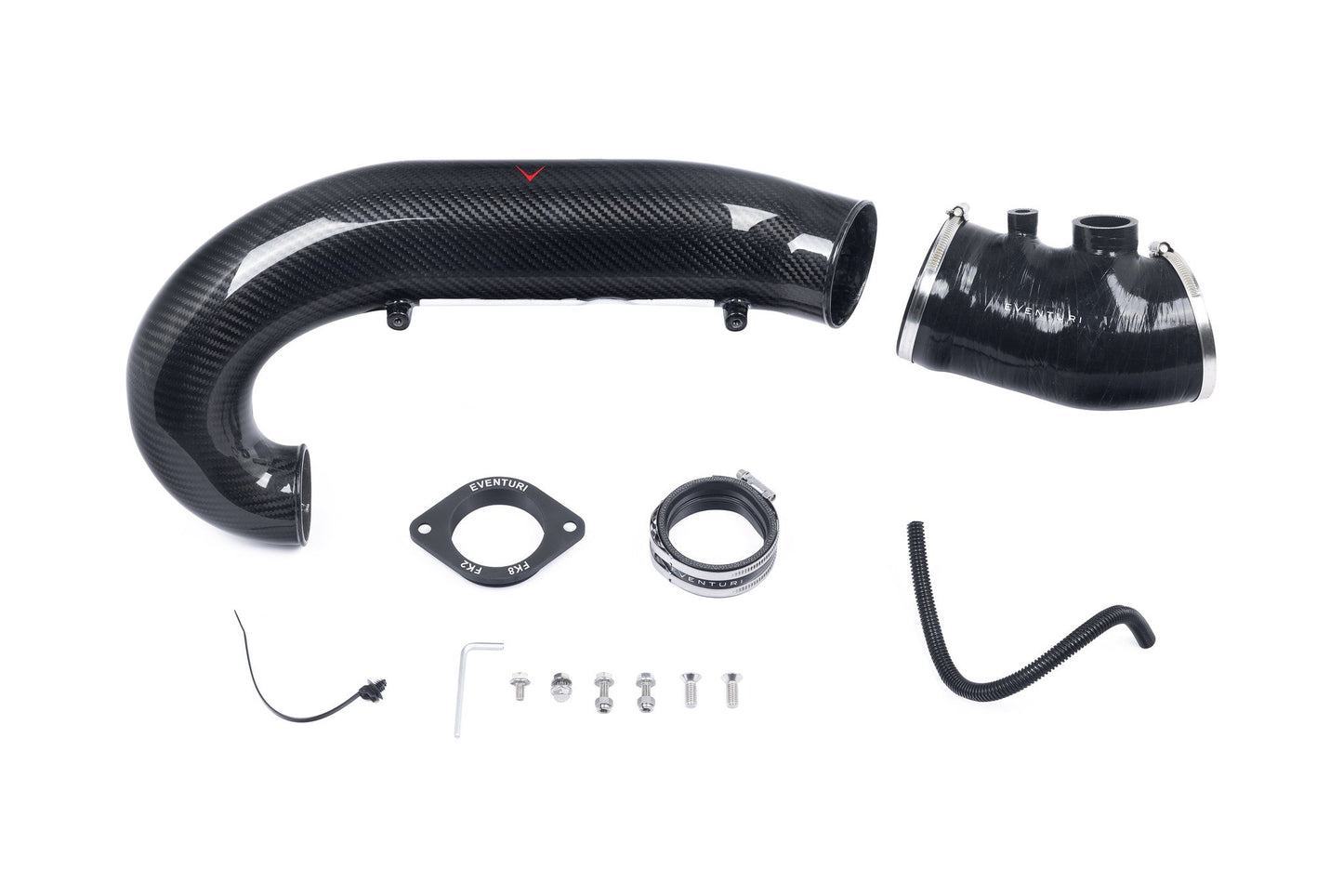Eventuri Carbon Fibre Turbo Tube V3 - Honda Civic Type R FK8
Couldn't load pickup availability

Honda FK8 Turbo Tube V3
Some photos show our optional engine cover and intake.
Performance Gain : 9hp, 9ft-lb peak, 15hp 18ft-lb under 4k rpm
Introducing our updated Carbon Turbo Tube for the FK8 which is now even larger in volume, allowing the turbo to function with even less restriction and therefore unleashing even more power. Our turbo tube was designed with these 3 key objectives:
1) VOLUME : Inlet Diameters – Eventuri 78mm at the intake end, increasing to 88mm VS Stock 63mm. Starting at the connection to the intake system, we have matched the MAF tube diameter and this now increases to 88mm through the main section of the tube giving an increase in cross sectional area of 96% compared to the OEM tube. Clearly with significantly larger internal diameter sizes, the Eventuri tube encapsulates a much larger internal volume which de-restricts the flow path to the turbo. This allows the turbo to operate more efficiently and spool up to peak boost levels faster. It also allows the turbo to operate at peak boost with less turbine loading.
2) FLOW QUALITY : Having just a large internal volume is no good unless the flow path also allows for smooth airflow to the turbo. By using high temperature Prepreg Carbon Fiber we have managed to achieve a smooth internal surface. In contrast, the stock inlet tube is made from cast aluminium which ends up with a rough internal surface. This coupled with the smooth curvature of the elbow results in a flow path which minimises turbulence.
3) TEMPERATURE : The final criteria was to minimise the conduction of heat into the airflow. The stock inlet is directly connected to the turbo and so immediately conducts heat as the turbo spools. Our system uses a machined flange which connects to the turbo and then a silicon coupler with an integrated thermal spacer to keep the carbon elbow from having direct contact with the turbo. This barrier coupled with the low through-thickness thermal conductivity of carbon fiber results in less heat being transferred to the airflow.

